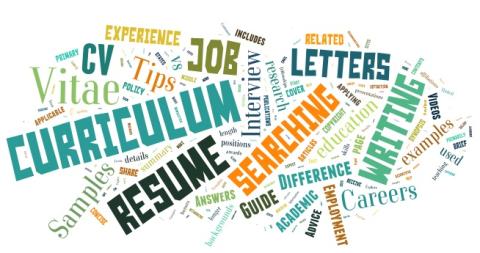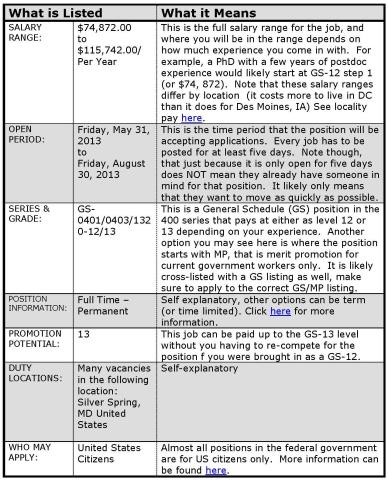Name: Anna Burkart Sadusky, PhD
Job Title & Company: Staff Scientist, Omeros Corporation
Location: Seattle, WA
How long you’ve been in your current job: Over two years
Postdoc Advisor, IC: Jurrien Dean, MD; NIDDK, Development Biology Lab
Name: Anna Burkart Sadusky, PhD
Job Title & Company: Staff Scientist, Omeros Corporation
Location: Seattle, WA
How long you’ve been in your current job: Over two years
Postdoc Advisor, IC: Jurrien Dean, MD; NIDDK, Development Biology Lab

2013 is quickly coming to a close and the approach of a new year can be a great time to reflect – not only on the past year, but also on what you hope to accomplish in the coming year. Inspired by year in review montages we have already begun seeing, we decided to take time to reflect on this year as well, specifically on some of the best career resources at one’s fingertips in 2013. This is not an exhaustive list, nor is it in rank order. As always, we would love to hear your input – please share your very own “Best of 2013” resources in the comments. 1.
Google Alerts* will email you results from various saved searches. You can customize the type and frequency of your emailed search results depending on your personal preferences. It is a free tool to use and you can save up to ten different alerts (1,000 if you have a Google account). Many businesses, especially public relations representatives, often use such alerts to keep abreast of news stories about their company’s competitors, trademarks, etc. Google Alerts can help you during a job search as well.

Resumes and CVs are both extremely important documents to a job seeker. They are some of the most important job hunting tools you possess. However, it can be confusing to know when and how to use each document. This confusion is often compounded by the fact that there is not a standard resume or CV template – your documents will (and should) look different than your lab mates. While there aren’t formal rules to follow, there are certain expectations for each document, which are noted in the table below:

Happy Halloween from OITE! Today is a day for tricks, treats and all things spooky. While we hope you will enjoy the spirit of this holiday in your personal life, we also invite you to think about your professional life and what part of the job search scares you.

Thorough preparation is essential in advance of any industry job interview to ensure that you perform at the highest level possible. Making sure that your resume is in order, that you have accessed available sources to obtain vital information both on the company and the person who will be conducting the interview and practicing your responses to anticipated questions are all key to completing a successful interview. One additional step that is just as important, but often times overlooked is preparing a set of questions to ask of the interviewers to help you determine whether t

By now you have probably realized that LinkedIn can be a powerful tool during your job search, but LinkedIn is not just another social networking site – it is the professional social network. As in real-life workplace situations, judiciousness and professional courtesy should steer all of your activity on LinkedIn.

Which agencies hire scientists? While the OITE is an NIH entity, great science happens in other divisions all across government. Almost all of these places hire scientists for both bench and non-bench positions. Non-bench positions can include: science administration (grants management from almost every agency, managing research programs, career development training), science policy (how innovative science is completed and promoted), regulation (determining if a drug is safe or an agricultural product is good for the environment).

For an industry job for scientists, the interview process generally takes six to eight weeks. Starting with an initial phone screen, successful candidates move on to an on-site interview where they usually meet with a number of people from the organization and give a scientific presentation. Next is the final interview, during which a verbal offer may be extended. What is not as well elucidated is how long the overall search process is likely to take.
